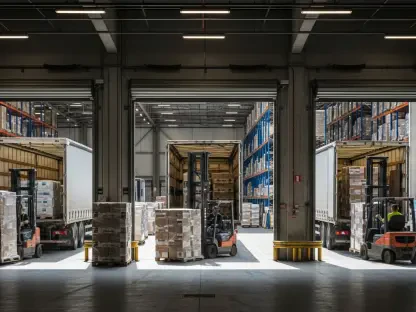The implementation of the European Entry and Exit System (EES), initially slated for November 10, has been postponed—a decision that has been positively received by Logistics UK. The EES mandates fingerprinting of passengers upon entry into the EU, but concerns were raised by businesses, especially in the logistics sector, about the insufficient testing of the IT system and the lack of an app for registration away from the border. If unresolved, these issues could cause severe delays, particularly during peak travel times. Nichola Mallon, Head of Trade at Logistics UK, highlighted that this delay is essential to avoid costly disruptions and delays that could potentially impact the economy by £400 million annually.
EES Delay and Its Impact on the Logistics Sector
Concerns Over IT System Readiness and Registration App
The logistics sector in the UK has been vocal about the potential pitfalls of quickly implementing the EES without thorough testing. Specifically, there is a notable absence of robust testing for the IT system required to manage the fingerprinting process efficiently. Additionally, the lack of an application that allows for preregistration away from the border has raised serious concerns. This could potentially lead to significant delays and logistical bottlenecks, significantly affecting the flow of goods and people.
Logistics companies are already operating under significant strain with rising operating costs and paper-thin margins. The logistics community fears that these unaddressed issues could exacerbate their operational challenges. The delay, therefore, offers a much-needed reprieve and a window to iron out these technological and procedural kinks. Over the years, logistics firms have adapted to many new regulations and technologies, but the stakes have never been higher. Companies are advocating for a phased implementation strategy where the efficiency and efficacy of the IT systems are tested rigorously before being fully rolled out.
Economic Ramifications of Disrupted Supply Chains
Nichola Mallon emphasized that if the EES were implemented without proper preparation, it could lead to economic disruptions costing up to £400 million annually. The logistics sector plays a critical role in keeping the supply chain fluid, and any hitch in this chain can have a cascading effect, hampering not just businesses but also consumers. Logistics UK is advocating for more time to ensure that any new system will not disrupt the seamless supply chain, which is vital for economic stability.
Given the current economic context, where businesses are already grappling with increased costs due to fuel prices, labor shortages, and the ongoing effects of Brexit, the introduction of an untested system would be particularly destabilizing. Even minor delays in the logistics chain could result in increased costs for businesses, which would invariably be passed on to consumers. Thus, securing an extended timeline for the EES rollout is not just about operational efficiency but also about economic sustainability.
The Need for Coordinated Efforts and Broader Challenges
Collaboration Between Governments and Stakeholders
The postponement of the EES rollout underscores the importance of coordinated efforts between the UK government and European counterparts to ensure a smooth transition. Logistics UK has called for meticulous planning and extensive testing to gauge Member State readiness before fully implementing the EES. This collaboration is crucial to maintaining a fluid supply chain between Great Britain and the EU, which forms the backbone of UK trade.
Logistics UK represents businesses across various transportation mediums, including road, rail, sea, and air freight. Their role is vital in ensuring that the concerns of the logistics community are heard and addressed. In advocating for this delay, the organization aims to ensure that the interests of the logistics sector, which is already contending with numerous challenges, are protected. The goal is to implement a system that enhances efficiency without disrupting current operations.
The Wider Context: Decarbonization, Brexit, and Technology Adoption
The launch of the European Entry and Exit System (EES), originally set for November 10, has been delayed, much to the approval of Logistics UK. The EES requires passengers to be fingerprinted when entering the EU, but businesses, particularly in the logistics industry, expressed concerns about the IT system not being adequately tested and the absence of a registration app offsite from the border. These unresolved issues could lead to significant delays, particularly during busy travel periods. Nichola Mallon, the Head of Trade at Logistics UK, emphasized that postponing the implementation is crucial to prevent costly disruptions and delays that could negatively impact the economy by approximately £400 million annually. Such a delay allows time to address these technical shortcomings and ensure that the system operates smoothly when finally implemented. The logistics sector plays a vital role in trade and any hiccups in the process could have far-reaching economic consequences. Therefore, this delay is seen as a necessary step to avoid chaos and economic losses.









